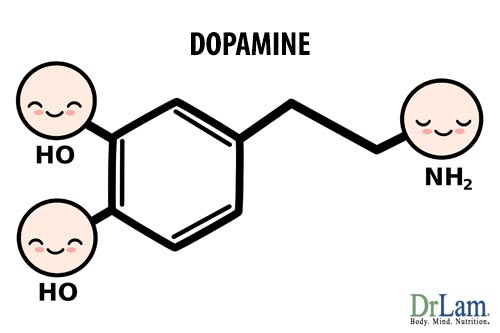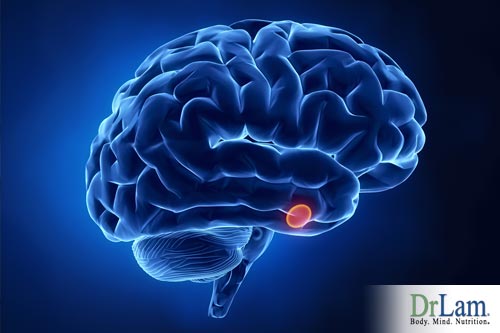 Everyone experiences setbacks, disappointments and obstacles in life, and sometimes these painful experiences can add up to feelings of hopelessness, helplessness, and the fear things will never change or get better. These are the feelings we know as depression. However, there are important ways for helping depression that everyone needs to know. Sometimes depression comes from chemicals, experiences, or an unbalanced stress response, but what is important to know is that through taking simple steps like improving diet, exercising, looking for chances to grow through difficult experiences, and reaching out to others, it is possible to change your circumstances.
Everyone experiences setbacks, disappointments and obstacles in life, and sometimes these painful experiences can add up to feelings of hopelessness, helplessness, and the fear things will never change or get better. These are the feelings we know as depression. However, there are important ways for helping depression that everyone needs to know. Sometimes depression comes from chemicals, experiences, or an unbalanced stress response, but what is important to know is that through taking simple steps like improving diet, exercising, looking for chances to grow through difficult experiences, and reaching out to others, it is possible to change your circumstances.
Depression is commonly defined as a low state of mood which then causes an apathy and aversion to activity that can affect a person’s thoughts, feelings, behavior, and sense of well-being. Often times, a person who is experiencing depression loses interest in activities that they used to consider pleasurable. This alone can lead to a multitude of issues such as problems with relationships, overeating, difficulty concentrating, and confused decision making.
Nobody’s life is perfect. Everyone, or at least most of us, experience days and weeks and months that just aren’t quite as good as we expect. We all deal with disappointments, heartbreak, family issues, stress with work, and many other things which can get in the way of happiness. The important thing to note is that, when someone struggles with depression, it is not as easy to shrug off these problems. However, as hopeless as depression may feel, there are methods for helping depression.
There are many researchers who believe that depression results from a chemical imbalance, although the process of how these chemical reactions in the brain help to contribute to depression is very complex.
There is no doubt that chemicals are a large part of the process. However, it is not just a simple matter of a singular chemical being too low or high. Many different chemicals and processes are involved. Because of this fact, there may be two people who have very similar symptoms of depression, but the way in which their depression should be cared for sometimes needs to be substantially different.
There are two main neurotransmitters that play a major role in depression. The first type of chemical neurotransmitter is serotonin. Serotonin helps to regulate sleep, mood, appetite, and inhibit pain. There is a large base of research that suggests that people who suffer from depression also have lower serotonin transmission levels. Research shows there is a higher risk of suicide in individuals who have lower serotonin byproduct levels.
 The next neurotransmitter of note is called dopamine. Dopamine is very important as it relates to movement, motivation, and plays a large role in how an individual perceives reality. Individuals who have dysregulated dopamine production often have serious implications, including psychosis, hallucinations, and delusional thought. Because of its role in the body's reward system, dopamine often is associated with substance abuse and addiction.
The next neurotransmitter of note is called dopamine. Dopamine is very important as it relates to movement, motivation, and plays a large role in how an individual perceives reality. Individuals who have dysregulated dopamine production often have serious implications, including psychosis, hallucinations, and delusional thought. Because of its role in the body's reward system, dopamine often is associated with substance abuse and addiction.
Exercise is a back to basics approach. The idea is to just get out, get moving, and you will feel much better.
Though this seems like a tired and arduous approach, there is merit in simplicity sometimes. Most people view exercise as a basic thing that we all take part in, many times without more than a social need to be fit and lose weight. However, for helping depression, it’s important to look beyond the aesthetics and consider the many ways in which exercise can help your mental state.
When you exercise, your body releases endorphins which stimulate growth of new brain cells and can even help you concentrate. Because of this, often exercise promotes higher self-esteem. There aren’t many people who could use a little boost in their self-image and sense of well-being. Not only this, but physical activity also has the side effect of elevating self-worth and making one feel as though they have achieved something. There are many instances in which gaining a feeling of control, which exercise provides, can assist in helping depression. Physical fitness is a remedy that is often talked about but also under-utilized.
There have been many studies that show that exercise can help improve mild to moderate depression with the same effectiveness as prescription antidepressants. This is great news for anyone who is focusing on helping depression in a natural way. In a day and age where we are often offered pills to help us forget our problems, it is welcome to have another option.
There are many benefits of exercise in place of taking drugs to help ward off poor mood, one of which is the fact that there are many fewer negative side effects involving exercise. In practice, exercise actually has positive side effects. It is often a much better option for the whole body than pharmaceutical pathways to helping depression.
While there are many benefits to a natural approach, it should be noted that there are circumstances where a pharmacological approach is necessary. Natural methods are great for mild to moderate depression, but not necessarily severe cases. It is always recommended that when you are beginning any plan for helping depression, you consult a professional regarding your personal situation. There are things that work for some people that do not necessarily work for everyone, and safety should be considered above all else.
One of the less talked about methods for helping depression lies within our own minds. There are countless success stories from people who have taken a mindful approach to helping depression through focusing on mindset and perspective.
 Many people who suffer from depression find themselves viewing life as an all or nothing game, a sort of zero sum experience. However, this is not the only way of looking at things. There are things that happen in all of our lives that could be viewed as positive or negative; many times our experiences are a mixture of both aspects. It might be considered tragic to lose a job. However, this can also be viewed as an opportunity to take the next step in progressing towards your personal goals and expanding your future. This type of change in perspective can make a big difference in allowing people to grow in their understanding of the true loss they have experienced and move onwards to take advantage of all life has to offer.
Many people who suffer from depression find themselves viewing life as an all or nothing game, a sort of zero sum experience. However, this is not the only way of looking at things. There are things that happen in all of our lives that could be viewed as positive or negative; many times our experiences are a mixture of both aspects. It might be considered tragic to lose a job. However, this can also be viewed as an opportunity to take the next step in progressing towards your personal goals and expanding your future. This type of change in perspective can make a big difference in allowing people to grow in their understanding of the true loss they have experienced and move onwards to take advantage of all life has to offer.
There are other benefits to adopting a more positive mindset as well. A more positive mindset allows your body to avoid reacting negatively to situations that aren’t necessarily truly dangerous threats to your wellbeing. There are chemical differences in how your body reacts when you perceive things as threats. Often during stressful circumstances, people experience what is known as the fight or flight response, which then sparks a cascade of physical reactions that can lead to or worsen depression.
When your body thinks it is in danger, it releases several chemicals to help better respond to the threat. This is a healthy, natural reaction designed for escaping or fighting off a physical danger. The problems lie in the fact that, often in modern life, the fight or flight response is triggered when there is only the perception of physical danger or future danger to well-being.
Normally, when the fight or flight response is triggered and the body is made ready for intense physical activity, the easiest way to cope is through physical exercise, which burns off the adrenaline and normalizes the body’s hormones. When this does not take place, it takes longer for the chemicals associated with the fight or flight response to return to normal levels. These chemicals can have a damaging effect on the normal operation of the body, resulting in fatigue and other symptoms.
Mindset comes into play here because how you look at a situation can sometimes change whether your body sees it as a threat, allowing you to mitigate the negative effects of an overly energetic fight or flight response. There will always be situations that are beyond our control, and many events in life are not necessarily good or bad, black or white. However, it is helpful to try to see the positive in negative situations and find ways that a potentially negative experience might be a chance to grow in life and as a person. Looking for silver linings and using humor are also good strategies to cope.
 When the mind views situations as black and white, it often uses certain words which, when we think of them, evoke mental triggers that can cause the fight or flight response. A few of those words are: impossible, ruined, disastrous, furious, terrible, awful, and never. These words focus on the negative. It is important to identify some of these words and try to remove them from our vocabulary in times of stress. When we think this way, it is difficult to feel hope. This lack of hope, and feeling things will not change, are characteristic thought patterns in depression. In reality, every single situation is not controllable, but we can focus on those aspects of life we do have control over, including mindset.
When the mind views situations as black and white, it often uses certain words which, when we think of them, evoke mental triggers that can cause the fight or flight response. A few of those words are: impossible, ruined, disastrous, furious, terrible, awful, and never. These words focus on the negative. It is important to identify some of these words and try to remove them from our vocabulary in times of stress. When we think this way, it is difficult to feel hope. This lack of hope, and feeling things will not change, are characteristic thought patterns in depression. In reality, every single situation is not controllable, but we can focus on those aspects of life we do have control over, including mindset.
When considering methods for helping depression, this approach focuses on gradual improvement more than the that outright abolition of symptoms. Changing mindset habits is a slow process, although it can have big benefits overall. Setting small, achievable goals is a good way to help you on the path to success.
 A more recent research avenue considered for helping depression suggests that a person’s diet is the lynchpin of healthy stress response. There are seemingly endless diet methods for promoting healthy brain and body function, but a few directly relate to depression.
A more recent research avenue considered for helping depression suggests that a person’s diet is the lynchpin of healthy stress response. There are seemingly endless diet methods for promoting healthy brain and body function, but a few directly relate to depression.
There are carbohydrates, sometimes known as “smart carbs”, which can have a calming effect. This is the case because there is a link between serotonin and carbohydrates. It is sometimes speculated that carb cravings are indicative of low serotonin activity. This doesn’t include just any carbs though. There are healthy ways to boost your carbohydrate intake through fruits, vegetables, and legumes that also benefit the rest of the body.
Protein intake is another important aspect of a healthy diet that can aid in helping depression. Clinical dietary professionals have recently suggested that the amino acid tryptophan can help serotonin production. Many of us are familiar with tryptophan, prevalent in the thanksgiving dinner favorite, turkey. Tryptophan is present in tuna and chicken also. Other good sources of protein that should be present in a healthy diet include lean beef, yogurt, and beans.
As with any change that we make to our bodies, it is best to take a long term approach to health. It’s also important to set achievable goals for our diets. Setting unrealistic expectations that may work for some, but not the majority of people, creates an opportunity for a simple slip up to be the end of the entire push for progress.
A national study in the United States in 2010 found a strong correlation between low levels of vitamin D and depression. There are many ways to get vitamin D through diet. One of the easiest ways is through dairy products. Supplementation is also a good way to help you meet your needs. If you have the time, and your lifestyle permits it, you should take some time to go out into the sun and soak up some rays. Being outside in the sun not only gives you direct exposure to UV rays which cause your body to produce vitamin D, but it also has many other calming effects that can assist in helping depression.
 There is also some evidence that those who are obese or diabetic also tend to have vitamin D deficiency. Obesity is a worldwide epidemic that also plays a role in depression. Not only does it cause negative health effects on joints, heart, and other internal organs, it causes changes in hormonal output and immunological responses that affect how you feel on a daily basis. When your body isn’t feeling well, it makes it harder to be cheerful and respond positively to the ups and downs of life. This creates a two way street. People who are overweight suffer from increased likelihood of depression, and people with depression have a higher likelihood of gaining weight. This creates a cyclical problem that can make the situation worse. However, increasing vitamin D and trying to take a more positive outlook on how you view your body can start helping depression by addressing some of its underlying contributors.
There is also some evidence that those who are obese or diabetic also tend to have vitamin D deficiency. Obesity is a worldwide epidemic that also plays a role in depression. Not only does it cause negative health effects on joints, heart, and other internal organs, it causes changes in hormonal output and immunological responses that affect how you feel on a daily basis. When your body isn’t feeling well, it makes it harder to be cheerful and respond positively to the ups and downs of life. This creates a two way street. People who are overweight suffer from increased likelihood of depression, and people with depression have a higher likelihood of gaining weight. This creates a cyclical problem that can make the situation worse. However, increasing vitamin D and trying to take a more positive outlook on how you view your body can start helping depression by addressing some of its underlying contributors.
Consuming alcohol and drugs is commonly associated with depression. When people feel hopeless, there is often a desire to make the feeling go away, even by using unhealthy methods. However, these methods aren’t helping depression There are increased health risks associated with drugs and alcohol, and using them to cope with depression does not create much relief.
Alcohol in particular has many negative effects on the body. It can interfere with sleep, mood, and motivation. When your body metabolizes alcohol, it cannot properly enter rapid eye movement (REM) sleep. This phase of sleep is where the majority of the rest takes place for our brains, allowing us to reset for the next day. This lack of proper sleep can lead to irritability, lethargy, and overall discomfort. Other issues occur with internal organs and brain function.
While it is not necessarily bad to consume alcohol in responsible quantities, it’s important not to medicate with alcohol in excess. There are other, more effective ways to cope with and help depression.
A study done by the Medical Science Monitor discussed several methods for helping depression. The conclusion of the study was that “depression may be an important factor in the negative assessment of one’s own ability to cope with difficult situations and can aggravate a tendency to perceive stressful events as overwhelming”. In other words, depression may make you feel unable to handle situations that you are actually capable of managing. It can make events that you could otherwise brush off seem too much to handle. This is a great insight into the approach that one should take to managing depression.
Stress is an important aspect of life. It helps to prepare us to adapt to changing environmental variables so that we can overcome unforeseen or difficult events. The problems begin to arise when people become so stressed that it has the opposite effect; they shut down because the situation is so overwhelming. Most people experience this effect at one point or another in their lives. Although there may always be stressful things in life, there are a few key tips for creating a more stable foundation.
 Active coping is when you try your best to confront the issue that is causing stress and minimize the impact that it has. Active coping is assisted strongly by planning. When you take a careful approach to tackling a difficult situations, you can often find ways to solve the issue at hand.
Active coping is when you try your best to confront the issue that is causing stress and minimize the impact that it has. Active coping is assisted strongly by planning. When you take a careful approach to tackling a difficult situations, you can often find ways to solve the issue at hand.
There are several ways to engage in helping depression, one of which is to seek social support in the form of asking for advice or information from someone who has more experience in dealing with the sort of problems that you’re facing. We can always go to people we know for advice and information, but there is another aspect that makes humans quite interesting and that is the need for emotional support. It is imperative that we use all of the tools at our disposal to confront our problems and sometimes that is as simple as asking a friend to lend you their ear for a bit. Talking through your problems and difficulties is a great way to engage your mind and synchronize your emotional state to the reality of your situation. As a part of active coping, not ignoring your problems is necessary.
This next point touches on maintaining a positive mindset. There are always going to be many different opinions on methods for helping depression, but studies seem to show that people who overcome depression tend to possess or adopt a mindset of growth, that sees stressors and setbacks as an opportunity to grow. It is about perspective. Maintaining a perspective of growth continually helps the person involved in the situation, while a perspective of loss and limitation only drains their energy and ability to see ways to improve things.
When we focus on how bad the problem is instead of how it can help us grow, we are coming from an angle of negativity. This negativity can make things seem more difficult than they really are. From the other side, if we choose to look at the positives of the issues and how they can help us grow, we can overcome them with more ease. There will be more focus put into ways in which we can succeed than into ways in which we can fail, thus promoting an attitude of looking forward towards positive experiences.
This may not work for everyone, and there are also times when people suffer traumatic stress, which is a different problem than normal depression. It is strongly encouraged that those who have undergone traumatic and very serious experiences, or who are experiencing severe and long lasting depression, seek professional help. There are times when everyone needs to reach out for assistance.
There is a system within all of our bodies which we use to help combat stressful situations on a physical level. This is known as the NeuroEndoMetabolic (NEM) Stress Response. Hormone balance plays a big part in the NEM stress response. The hypothalamus is the first piece of the puzzle. Once the hypothalamus signals that there is danger, the pituitary gland is triggered to act by producing hormones and further signaling the adrenal glands.
 The adrenal glands are responsible for producing cortisol, a very powerful hormone that is so directly related to the stress response that it is sometimes referred to as the “stress hormone”. Cortisol has many jobs in the body, and while it can be very helpful in difficult times, it also has the ability to inflict great damage on the body. There are a few things that take place when cortisol levels remain high for a prolonged period of time. A few of these include sleep disruption, decreased muscle mass, high blood pressure, and increased wound healing timelines. This is just one aspect of the NEM stress response.
The adrenal glands are responsible for producing cortisol, a very powerful hormone that is so directly related to the stress response that it is sometimes referred to as the “stress hormone”. Cortisol has many jobs in the body, and while it can be very helpful in difficult times, it also has the ability to inflict great damage on the body. There are a few things that take place when cortisol levels remain high for a prolonged period of time. A few of these include sleep disruption, decreased muscle mass, high blood pressure, and increased wound healing timelines. This is just one aspect of the NEM stress response.
Because of all of the negative things associated with a poorly regulated NEM stress response, it is very important to mitigate stress. It is easy to fall into a cycle of high stress, which causes many long term issues. However, if these issues are addressed, they can be lessened over time. This overview of how the endocrine circuit of the NEM stress response works is especially important if it becomes dysfunctional and you develop adrenal fatigue.
 More people than ever are now recognizing the fact that there is a link between stress, helping depression, and adrenal fatigue. People who suffer from adrenal fatigue are often plagued with other ailments that are not always directly relatable to their adrenal issues. When your body is subjected to large amounts of stress, the responsibility to respond to these negative variables is often put onto the adrenal glands. The adrenal glands are, if you can consider the fact that everything is necessary in the stress response process, the workhorse of the stress response. It is important to recognize this fact for a multitude of reasons. If you are experiencing stress on a continual basis or suffer from depression, there is a high probability that you are suffering from Adrenal Fatigue Syndrome (AFS).
More people than ever are now recognizing the fact that there is a link between stress, helping depression, and adrenal fatigue. People who suffer from adrenal fatigue are often plagued with other ailments that are not always directly relatable to their adrenal issues. When your body is subjected to large amounts of stress, the responsibility to respond to these negative variables is often put onto the adrenal glands. The adrenal glands are, if you can consider the fact that everything is necessary in the stress response process, the workhorse of the stress response. It is important to recognize this fact for a multitude of reasons. If you are experiencing stress on a continual basis or suffer from depression, there is a high probability that you are suffering from Adrenal Fatigue Syndrome (AFS).
When the adrenal glands are placed under high burdens of elevated stress, they can often fail to respond in ways that are advantageous to proper health. The adrenal glands control inflammation, immunological responses, and even play a part in regulating metabolism, so there is a high risk level when they aren’t functioning as they should.
To consider AFS in the context of helping depression, you need to look at your lifestyle and the ways in which you are currently coping with stress. Diet has a lot to do with how we process stress. Putting poor fuel in our bodies can have a very negative effect on how we feel on a daily basis. When our bodies don’t have what they need to properly react to stress, the adrenal glands begin to operate insufficiently. This creates a cyclical problem in which we feel worse, we do less, and our depression and stress levels continue to rise, while at the same time, our bodies are not as equipped to cope with these symptoms.
There is a strong link between inflammation, depression, and adrenal fatigue. This relationship could be present because of several factors including poor diet, stress, and lack of proper adrenal recovery time. When the adrenal glands reach a stage of fatigue and exhaustion, the body cannot keep levels of inflammation low, because of improperly controlled cortisol output. This can cause damage to neurons in the brain. Because of this neurological damage, serotonin and dopamine levels in the brain can become imbalanced and contribute to increased levels of depression. Through a protocol to aid in helping depression, adrenal recovery, inflammation levels can be kept in check and the damage caused by hormone dysregulation can be mitigated.
There are ways that you can help to normalize your adrenal function and reduce the burden placed on the adrenals while simultaneously helping your depression. Exercise has an important role to play in not only stress recovery, but in general health and well-being. Exercise on a regular basis has the effect of releasing dopamine and serotonin, which are both known to reduce depression. As it relates to AFS, exercise helps to reduce cortisol levels and return the body back to a balanced state where stress become easier to tolerate. However, exercise can also trigger adrenal crashes for those with advanced adrenal fatigue or adrenal exhaustion. The weaker the adrenals, the higher the risks. Therefore, finding the proper exercise level for your body is key.
 When proper exercise routines are maintained, the body has a much better ability to rest, and this is important because AFS sufferers often have a difficult time sleeping. This is also a something that contributes to depression and stress. When we allow our bodies to get proper rest, we are more able to deal with what life throws our way.
When proper exercise routines are maintained, the body has a much better ability to rest, and this is important because AFS sufferers often have a difficult time sleeping. This is also a something that contributes to depression and stress. When we allow our bodies to get proper rest, we are more able to deal with what life throws our way.
However, it is important to recognize that certain methods of adrenal recovery need to be implemented with caution, depending on your physical ability and stage of AFS. In advanced cases, it can be unsafe to engage in helping depression with intense physical activity because of the precarious physical conditions present in the body, such as high inflammation and maldigestion. Exercise in these situations can actually worsen symptoms for someone suffering from AFS. Make sure to take an accurate assessment of your individual situation before making any substantial changes to your routine to avoid an AFS recovery backfire.
AFS can often lead individuals down a road of discouragement which can then lead to depression. It is important when dealing with both depression and AFS that you continue to focus on the control you do have, including taking steps, however small, to improve your health and situation. Every bit counts when trying to heal.
When you approach problems in your life with a positive mindset, there are physical impacts that are apparent immediately. Your body has a default setting in which stress triggers a fight and flight response. There are ways to avoid this if you can manage to train your mind to view obstacles in life differently.
If you avoid the fight and flight response, your body does not have to go through the damaging effects of cortisol released by the adrenal glands. If the balance of your blood sugar, cardiovascular function, and metabolism are not dysregulated by stress, your body can more easily maintain a healthy internal balance of hormones and stay on the road to recovery. This hormonal imbalance from stress that is a major factor in AFS.
Helping depression is a very difficult thing. It is a time to consider making small, healthy changes in our lives and thought processes by examining the link between what causes stress and how that stress is managed within the body. Through exercise, diet, and shifting towards a more growth oriented outlook on things, you can help depression.
There is a simple truth that battling with AFS and depression should not be done alone. Always consider who is around you that supports you and uplifts your mood and perspective. Nobody should have to go through the recovery process by themselves, and having the support of friends, family, and other support people helps make lifestyle changes more effective and prevents you from slipping back into old ways of doing things.
When you talk to someone who cares, giving you an outlet for your emotions, the NEM stress response becomes better regulated and anxiety is reduced. It’s important to reduce anxiety levels, because these can also lead to a fatigued stress response and to feelings of hopelessness. Continually elevated levels of stress hormones are a major contributor to adrenal fatigue. Once you have established who is in your life that can help to encourage you, do your best to stay in touch with them and share what you are experiencing and the steps you are taking.
There is also a large quantity of literature available online that can help you understand what you are going through and outline a plan for making helpful changes.
 Once you put into place some basic changes, you’ll be amazed at how quickly things can turn around. Depression and fatigue have definite physical components, but though the NEM stress response and AFS are things that take place within our bodies, mindset also has an important role. When things seem negative or impossible to overcome, our bodies are triggered into what they see as a naturally appropriate response for survival. However, trying to look at situations in a more positive light or as bringing opportunities for desirable changes in your life can help mitigate that need for a survival response. It can keep you balanced and give you a brand new day to look forward to.
Once you put into place some basic changes, you’ll be amazed at how quickly things can turn around. Depression and fatigue have definite physical components, but though the NEM stress response and AFS are things that take place within our bodies, mindset also has an important role. When things seem negative or impossible to overcome, our bodies are triggered into what they see as a naturally appropriate response for survival. However, trying to look at situations in a more positive light or as bringing opportunities for desirable changes in your life can help mitigate that need for a survival response. It can keep you balanced and give you a brand new day to look forward to.
Regardless of circumstances, there are methods that can be used for helping depression and recovering from AFS which everyone can take part in. It is our hope that through reading this article, you feel empowered in the process of making some changes to your situation. There is much more to any situation and any individual than can be seen on the surface, and though you may feel hopeless and alone, it doesn’t mean that you are. Take tiny steps, reach out to others, and find yourself on the path to a brighter tomorrow. There may be many things that seem to need to be done, and it may feel like too much, but everything has to start with the first step. Making just one small change could help improve your life in ways you never could have imagined.